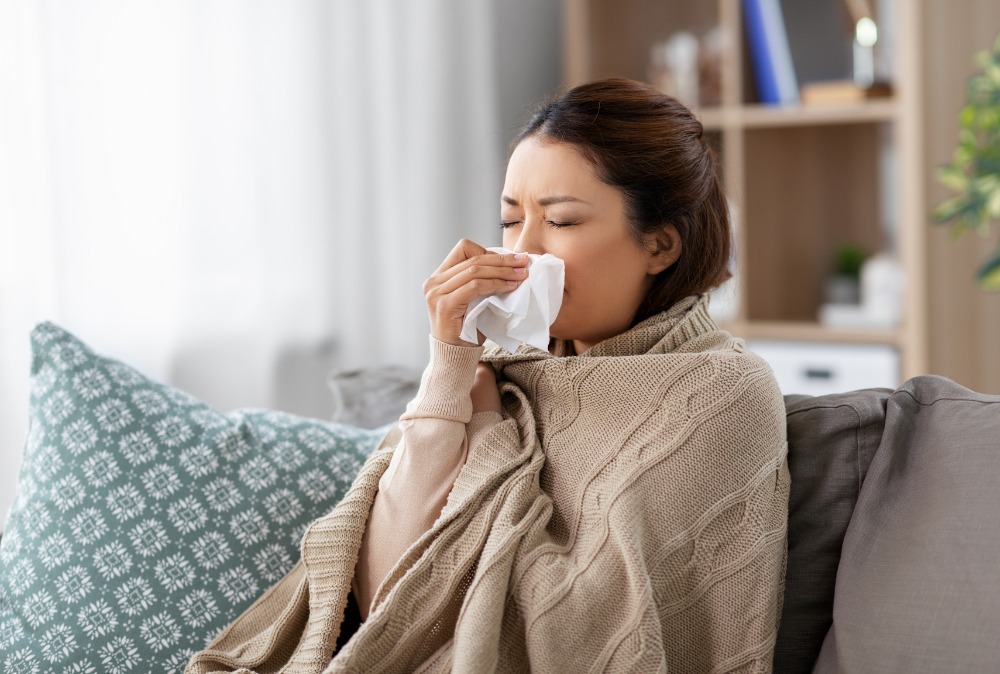
At KindlyMD, we believe in practical, evidence-based approaches to health — especially when it comes to something as familiar and frustrating as the common cold. While this ailment is rarely serious, it certainly can be uncomfortable. Here’s a breakdown of what happens, how it’s treated, and how you can support yourself (or a loved one) through those sniffles and coughs.
The common cold is a mild viral infection of the upper respiratory tract — a collection of viruses (most commonly rhinoviruses) that invade the nose and throat, causing symptoms like runny or stuffy nose, sore throat, cough, mild fatigue and sometimes low-grade fever.
Most people will recover from a cold within 7-10 days. But because there are hundreds of different cold-causing viruses, there is no single “cure” yet. Your body’s immune system ultimately clears the infection; our role is to help navigate the discomfort and avoid complications.
Usually, the common cold will resolve on its own and you can soothe the symptoms at home. Medical attention is rarely needed unless symptoms worsen or persist.
However, there are warning signs to watch for: if you develop a high fever, symptoms last more than about 10 days, you have underlying health conditions (like asthma or a weakened immune system), or you experience difficulty breathing or dehydration — then it’s time to reach out to a healthcare provider.
It’s also worth noting that antibiotics do not treat the common cold (since it’s viral, not bacterial), and misuse of antibiotics leads to resistance and other harms.
While you can’t “cure” the cold (the virus still needs to run its course), you can support your comfort and recovery in several meaningful ways:
If you find yourself with a cold, take a mindful approach. Start by acknowledging that your body is working to clear a virus. Provide rest, hydration, and comfort. If your symptoms include a sore throat, runny or stuffy nose, mild cough and possibly some fatigue, use safe symptom-relief measures (see above) and monitor your progress. Avoid over-the-counter or herbal treatments that lack evidence unless you’ve discussed them with a healthcare provider.
Keep prevention in mind for the next round — commit to good hand hygiene, healthy sleep and nutrition, and minimize exposure when possible. And finally, if you notice red-flags (very high fever, breathing trouble, symptoms lasting too long), seek professional care.
Remember: the common cold comes for us all. But you don’t have to face it unprepared. With the right balance of rest, care and awareness, you can ride it out — and be ready to move on with your life.
